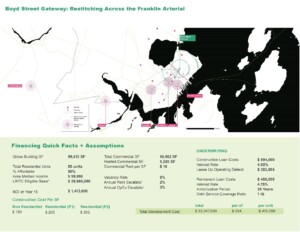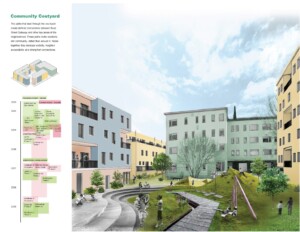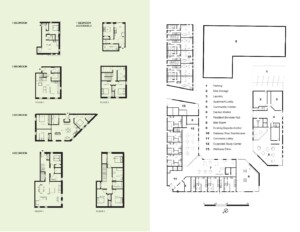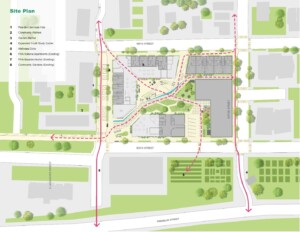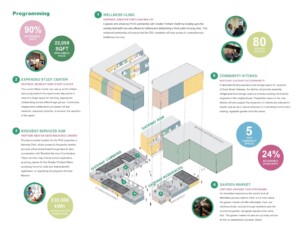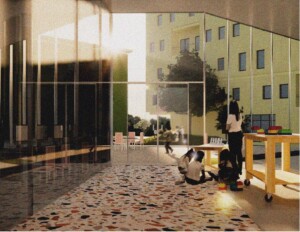2023 Plimpton-Poorvu Design Prize, Second Prize: “Boyd Street Gateway”
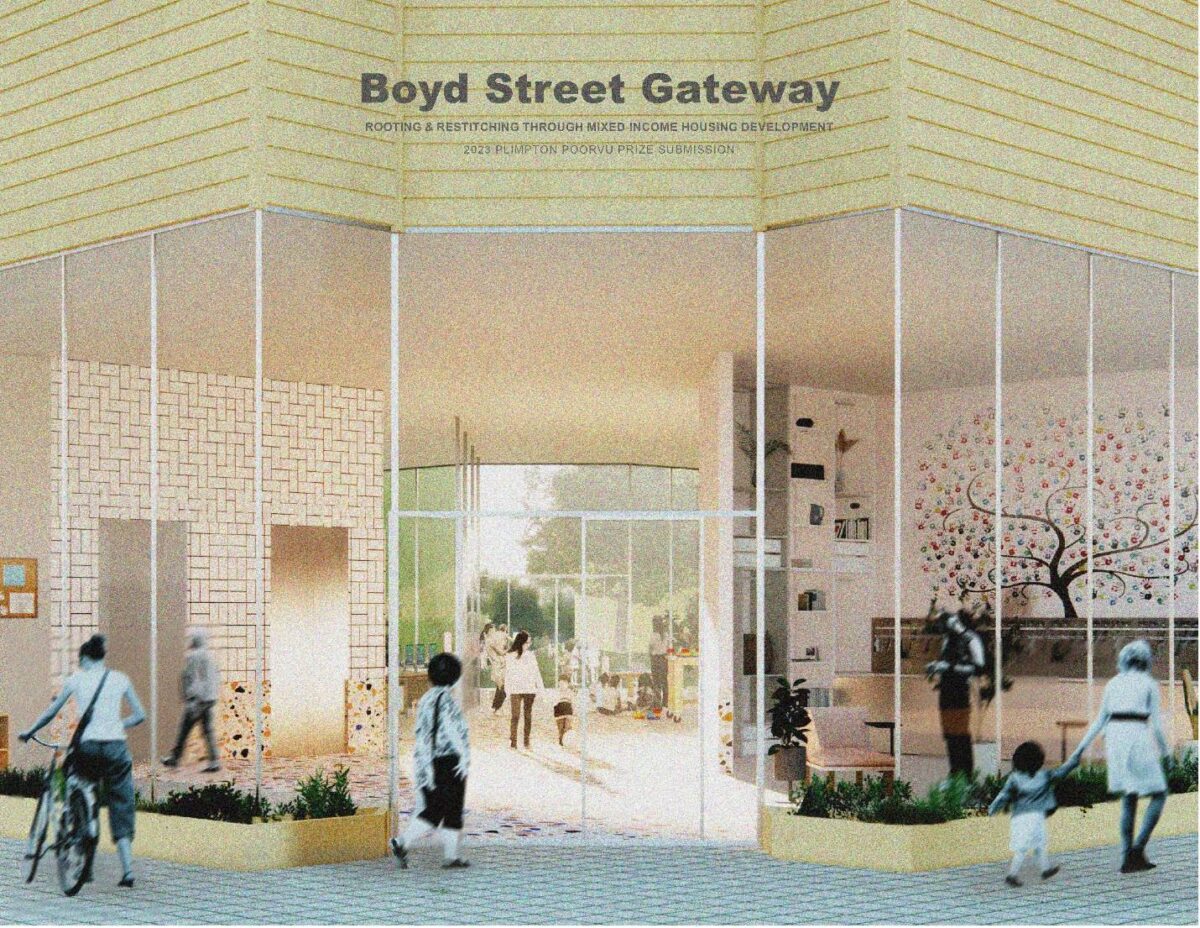
by Maddie Farrer (MArch I ‘25), Madeleine Levin (MUP ‘23), and Arielle Rawlings (MUP ‘23) — Recipients of the Plimpton-Poorvu Design Prize, Second Prize.
Boyd Street Gateway is a proposal to develop new affordable housing, social services, and community space in Portland, Maine, aiming to restitch neighborhood connections through a respectful design that enhances local housing stability while rooting the currently-disparate community core of the East Bayside neighborhood. There is a deep need for more affordable housing in Portland and in the East Bayside neighborhood in particular, with families making up 68% of the Housing Authority’s public housing waitlist. Boyd Street Gateway introduces 80 new units of housing (90% affordable), many of which are large enough to accommodate multigenerational families, and a dynamic range of social and commercial services that are currently underprovided in East Bayside.
Boyd Street Gateway will create a central, consolidated core for the various Portland Housing Authority buildings adjacent to the site, as well as for the three new buildings proposed in this project’s comprehensive development plan. Permeable pathways stitch together the Boyd Street Gateway and broader East Bayside community, running through the community spaces within the buildings and into the preserved topography in the central courtyard. Beyond the site itself, the project will honor the neighborhood’s role as Portland’s immigrant gateway by enhancing walkability, improving access to public transportation, and ameliorating the division caused by the Franklin Arterial Urban Renewal Project.
Our proposal considers design and financing holistically, using each to inform the other and ensure long-term, affordable, beautiful homes. Boyd Street Gateway’s three buildings respect the architectural character of East Bayside and the site’s adjacent public housing buildings while centering a design approach that brings in new communities who have been historically marginalized or economically excluded. The two-phased plan for the site creates opportunity for two distinct 9% Low-Income Housing Tax Credit projects, allowing for the provision of more affordable units than a single-phased project could provide and eliminating the need for relocating current tenants during construction. In addition, a creative financing plan, including comprehensive sources and uses proposals and a 15-year pro forma, ensure financial viability.
